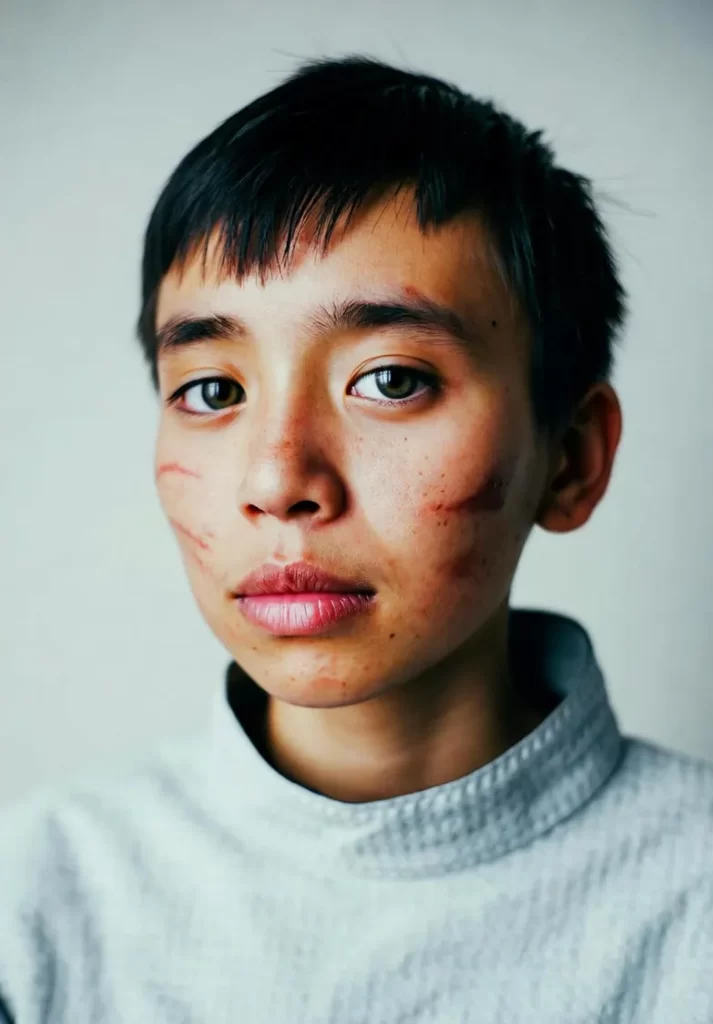- Home
- Sexual Abuse
- Sexual Assault
- Sexual Assault of a Child
Sexual Assault of a Child
- October 17, 2025
-
Sarah Miller
- Fact Checked By Our Attorneys
Sexual assault of a child refers to any sexual contact or activity forced on a minor. Because children cannot legally give consent, these actions are always considered sexual abuse or child sexual abuse and carry some of the most severe legal penalties. Survivors often face lifelong emotional and behavioral trauma, but families can take action to protect their child and pursue justice.
If you need guidance on how to report suspected child abuse or take legal steps, Legal Claim Assistant can connect you with an attorney for a free, confidential case review today.
No Win, No Fee. Let the Best Sex Abuse Attorneys Fight for your Compensation!
Key Takeaways:
Sexual assault of a child includes any sexual contact or activity forced upon a minor, and is always considered sexual abuse because children cannot legally give consent.
Survivors may experience long-term emotional and behavioral effects, including fear, anxiety, depression, PTSD, difficulties with trust, and challenges in relationships.
Abuse often occurs in trusted environments such as schools, churches, camps, youth programs, and detention centers, making the violation of trust especially damaging.
Legal protections exist through both criminal prosecution and civil lawsuits, allowing families to pursue justice and compensation for the harm caused.
Find out your eligibility in 2 minutes
If your child has been a victim of sexual abuse at a summer camp, overnight camp, or day camp, you are not alone. Many families have experienced the same fear, heartbreak, and search for justice.
Our team connects you with experienced and compassionate child sexual abuse attorneys who understand the sensitive nature of these cases. We’re here to protect your child’s rights and guide your family through the legal process — helping you pursue the compensation and accountability you deserve.
Begin your free and confidential case review today.

What Is Sexual Assault of a Child?
Sexual assault of a child is any sexual activity forced upon a minor, regardless of the child’s consent. Because children cannot legally give consent, all sexual contact with a minor is considered sexual abuse or child sexual abuse. This includes a wide range of behaviors, from touching and fondling to penetration and sexual intercourse. Even repeated acts, sometimes referred to as continuous sexual abuse, are recognized as serious crimes under state and federal legal definitions. Acts that cause serious bodily injury or involve aggravated sexual assault are treated with the highest severity in the court system.
Sexual assault can take many forms, including inappropriate touching of a child’s or another person’s genitals, coercion into sexual conduct or sexual activity, exposure to pornography, or engaging in sexualized interactions. The abuse may involve sexual desire or intent by the perpetrator, and it can occur over two or more acts that form a pattern of abuse.
Both young children and older children can be victims, and the perpetrator may be an adult, family member, or someone in a position of trust, such as a teacher, coach, or caretaker. Abuse may also occur between individuals of the same sex, highlighting that sexual assault is defined by the act and intent, not the genders of those involved.
The impact of sexual assault on a child can be profound. Victims may experience low self-esteem, depression, anxiety, or other lasting emotional harm. Physical consequences can include bodily injury, while long-term effects often extend to difficulties with trust, relationships, and mental health. In some cases, children who are sexually abused may be at risk of suicide or self-harm if the abuse is unreported or ignored.
Degrees of Sexual Assault of a Child
Sexual assault of a child is classified into different degrees to reflect the severity of the acts and the level of harm caused.
First-degree sexual assault of a child is the most severe form and generally involves penetration or sexual intercourse, often accompanied by violence or the use of force. These acts are considered aggravated sexual assault under the law and can result in the harshest penalties.
First-degree offenses typically involve an adult engaging in sexual activity with a young child or older child, and the acts may include touching or contact with the child’s or another person’s genitals. Courts treat these cases with the highest priority due to the significant physical and emotional harm inflicted upon the victim.
Second-degree sexual assault of a child usually involves sexual contact without penetration but still constitutes sexual abuse or child sexual abuse. This can include inappropriate touching, fondling, or other forms of sexual conduct that exploit the child’s vulnerability. Even when penetration does not occur, repeated or continuous sexual abuse can have severe long-term effects, including trauma, low self-esteem, anxiety, and other psychological consequences.
These offenses may involve physical contact intended to satisfy the perpetrator’s sexual desire, and prosecution can occur whether the acts are committed by family members, trusted adults, or other persons.
Aggravated sexual assault of a child refers to offenses that include threats, weapons, or repeated acts of abuse that place the child at risk of serious bodily injury or lasting harm. This category can also include crimes committed against more than one child or acts that create a pattern of continuous sexual abuse.
Aggravated sexual assault is treated as an especially serious crime under both state and federal statutes, and may impose lengthy sentences to protect children and deter further abuse. Families and parents are encouraged to report suspected child abuse immediately, as timely reporting can prevent additional harm and help ensure that perpetrators are held accountable through prosecution.
The Impact on Child Survivors
The impact of sexual abuse and child sexual abuse on victims can be profound, affecting their emotional, behavioral, and long-term development. Emotionally, children who have been sexually abused may experience intense fear, shame, guilt, anxiety, or post-traumatic stress disorder (PTSD).
They may struggle to understand why the abuse occurred, especially when an adult engages in sexual activity with a child in a position of trust. Victims of sexual assault, sexual contact, or sexual intercourse may feel isolated and vulnerable, highlighting the importance of creating environments where children are safe and supported.
Behavioral changes are also common. Children who have been sexually abused may regress in their development, suddenly withdraw from social interactions, have difficulty at school, or display changes in eating or sleeping patterns.
Specific acts of abuse, including inappropriate touching, contact with the child’s genitals, or exposure to pornography, can have lasting effects on their daily functioning and behavior. Parents and guardians are encouraged to respond with care, observe changes without judgment, and seek professional help to support the child’s recovery.
The long-term effects of child sexual abuse often extend into adulthood. Survivors may have difficulty forming healthy relationships, trusting others, or maintaining emotional stability. They may also be at higher risk for depression, anxiety, substance abuse, or thoughts of suicide if the abuse goes unreported or unresolved.

Signs Your Child May Be Experiencing Sexual Abuse
Recognizing the signs that a child may be experiencing sexual abuse is critical for timely intervention and protection. While every child responds differently, common indicators include sudden behavioral changes, withdrawal from friends or family, regressive behaviors such as bedwetting or thumb-sucking, and unexplained fears or anxieties. Physical signs may include bruising, injuries, or discomfort in the child’s genitals, while emotional signs often manifest as low self-esteem, irritability, depression, or fear of adults.
Children who are sexually abused may also exhibit knowledge of sexual activity or sexual conduct beyond their age, show avoidance of school or social activities, or have difficulty forming healthy relationships. Parents, guardians, and educators should respond with care, ensuring children are safe and respected, documenting observed behaviors, and seeking professional guidance to confirm suspicions.
FREE!
Find out if you're eligible and may be eligible for compensation.
Get your Free Case Review and Maximize You Payout With the Help From Legal Claim Assistant.
Sexual Assault of a Child in Institutions
Sexual assault of a child can occur in a variety of institutional settings where children are meant to be safe, including schools, churches, camps, youth programs, and detention centers. In these environments, perpetrators often exploit positions of trust and authority to engage in sexual activity, sexual contact, or other acts of child sexual abuse.
Children may be targeted due to their age, vulnerability, or reliance on adults for supervision and care. Acts can range from inappropriate touching or fondling of a child’s genitals to sexual intercourse or other forms of sexualized conduct. Regardless of the type of abuse, every incident constitutes a violation of the law and the child’s fundamental rights.
Institutions have a legal and moral responsibility to protect children. When leaders, administrators, or staff ignore reports of abuse or attempt to cover up offenses, they may be legally liable and subject to prosecution. Institutional failures can prolong the harm to victims and prevent children from accessing necessary support.
Parents and guardians should be vigilant for signs that a child may have been sexually abused, including changes in behavior, withdrawal, or emotional distress, and must report suspected child abuse promptly to law enforcement or child protection services. Reporting is a critical step to ensure that perpetrators are held accountable and that other children in the institution remain safe.
Legal Protections and Penalties
Legal protections exist to safeguard children from sexual abuse and child sexual abuse, and the law defines strict classifications for offenses depending on the severity of the act. States generally differentiate between first-degree, second-degree, and aggravated sexual assault of a child, with provisions that apply to adults engaging in sexual activity, sexual contact, or other acts with minors.
Even lesser included offenses are taken seriously, and courts recognize the profound harm caused to the victim, whether through touching, sexual intercourse, or other forms of sexual conduct. Laws are designed to ensure children are safe, hold perpetrators accountable, and prevent further violations of life, health, and well-being.
Sentencing guidelines for child sexual abuse are often harsh, reflecting the gravity of the offenses and the enduring impact on victims. Convictions can result in long prison terms, mandatory registration as a sex offender, and restrictions on contact with children.
Civil law provides another avenue for victims and families to respond to abuse. Survivors may be able to file claims to seek damages for the emotional, physical, and psychological harm suffered. However, these claims are subject to a statute of limitations, which varies by state and type of offense.
Timely reporting and documentation of abuse are critical to preserve the right to pursue legal action. Parents, guardians, and victims are encouraged to respond promptly to suspected abuse, both to protect the child and to ensure that perpetrators are held accountable under the full extent of the law.
Learn more about the Statute of Limitations on Sexual Assault.
Civil Lawsuits for Survivors of Child Sexual Assault
Survivors of child sexual abuse have the right to pursue civil claims in addition to criminal prosecution. Civil lawsuits provide an opportunity for victims and their families to seek compensation for the emotional, physical, and psychological harm caused by abuse. Filing a claim requires that the survivor was a child at the time of the abuse and that the abuse involved skin-on-skin contact, touching, or other sexual conduct.
The abuser must be known, and the claim must be filed while still within the statute of limitations. In cases where the abuse occurred in an institutional setting, such as schools, churches, camps, or youth programs, the institution must still be in operation for the claim to proceed.
Civil lawsuits serve multiple purposes: they hold both the perpetrator and responsible institutions accountable, provide resources for the survivor’s recovery, and help prevent further abuse by creating legal precedent. Parents and guardians play a crucial role in documenting incidents, reporting suspected child abuse, and supporting the child throughout the legal process.
Courts will evaluate the facts, including the age of the child, the nature of the abuse, the relationship between the abuser and the victim, and the extent of harm suffered. Proving a civil claim requires evidence that the abuse was committed, that the perpetrator or institution violated laws or policies, and that the victim suffered tangible or intangible damages as a result.
Connect with a professional Los Angeles Sexual Assault Attorney to learn more about civil lawsuit.
“Recognizing the signs of abuse is the first step toward protecting and healing a child’s stolen innocence.”
Steps Families Can Take
When a child has been sexually abused, immediate action is crucial to ensure the child’s safety and well-being. Families should first focus on removing the child from any environment where the abuser may be present and seek medical support to address both physical and emotional health concerns. Ensuring children are safe is the top priority, and prompt medical attention can help document any evidence of abuse while providing care for the child’s body and emotional state.
Parents and guardians should report suspected child abuse to child protection services or law enforcement as soon as possible. Reporting is a critical step in prevention, allowing authorities to investigate, respond appropriately, and prevent further abuse by holding the accused accountable.
Documentation of incidents such as dates, locations, descriptions of acts, and any evidence of threats or coercion can be essential for both criminal prosecution and civil claims. Families are encouraged to maintain detailed records while respecting the child’s privacy and emotional needs.
Seeking legal guidance through an experienced sexual abuse lawyer is another key step for families. A knowledgeable attorney can explain how relevant laws apply, advise on the statute of limitations, and help navigate the legal process to pursue justice and protection for the child.
Legal professionals also provide guidance on defense strategies that may be used by the accused and ensure the family understands their rights at every stage.
FREE!
Find out if you're eligible and may be eligible for compensation.
Get your Free Case Review and Maximize You Payout With the Help From Legal Claim Assistant.
Reporting Suspected Child Abuse
Reporting suspected child abuse is a vital step in protecting children and holding perpetrators accountable. Families or concerned adults should immediately contact local child protection services or law enforcement if they suspect sexual abuse. The report should include the child’s information, the nature of the suspected abuse, details about the alleged abuser, and any evidence or observations, while keeping the child’s safety and privacy in mind.
Authorities will respond by assessing the situation, investigating allegations, and taking protective measures to ensure children remain safe. Professionals may conduct interviews, medical examinations, and consult legal statutes to determine whether the abuse occurred and how the law applies. Parents and guardians should cooperate with investigators and provide any documentation or evidence they have collected.
Free, Confidential Case Review for Families
If your child has been a victim of sexual abuse or sexual assault, you do not have to face this situation alone. Legal Claim Assistant connects families with experienced attorneys who specialize in protecting children and holding perpetrators accountable. Every case review is completely confidential, with no cost or obligation, allowing families to explore their legal options safely and without pressure.
By taking this step, parents and guardians can ensure their child is safe and receives the support needed to recover from the trauma inflicted by adults who have violated the law and harmed a vulnerable human being.
Our attorneys understand that every situation is unique, and they provide compassionate guidance tailored to the child’s age, the severity of the abuse, and the circumstances of the offense. They also explain how relevant sections of the law apply, including statutes regarding civil claims and criminal prosecution.
Families gain clarity on the legal process and are empowered to make informed decisions while protecting the rights, health, and well-being of the child. Women and children who have experienced abuse in institutional or family settings can benefit from the professional, empathetic support available through a free case review.
Requesting a confidential case review is a crucial first step in seeking justice and compensation for the harm committed. It ensures that survivors are not left to navigate the complex legal system alone, and that adults responsible for abuse are held accountable. Legal Claim Assistant helps families respond effectively, prevent further violations, and uphold respect for human dignity, life, and safety.
You Deserve Justice. Let Us Help.
Speak with a trusted sexual abuse attorney who will stand by your side, protect your privacy, and fight for the compensation you deserve.
No Win, No Fee. Let the Best Sex Abuse Attorneys Fight for your Compensation!
Under 1 Minute
100% Free
Expert-Reviewed
Private & Secure
© 2025 Legal Claim Assistant. All Rights Reserved.
Terms of Service | Privacy Policy | Contact Us | Marketing Partners
Related Article

What Philips CPAP Machines Are Recalled and Why
